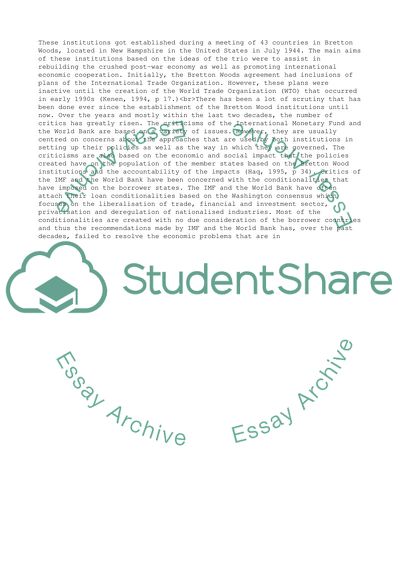Cite this document
(“Discuss to what extent Bretton Wood institutions have been responsive Essay”, n.d.)
Discuss to what extent Bretton Wood institutions have been responsive Essay. Retrieved from https://studentshare.org/management/1632683-discuss-to-what-extent-bretton-wood-institutions-have-been-responsive-to-criticisms-and-changed-in-the-last-two-decades-analyse-each-institution-separately-explaining-what-aspects-have-been-reformed-or-not-why-and-how
Discuss to what extent Bretton Wood institutions have been responsive Essay. Retrieved from https://studentshare.org/management/1632683-discuss-to-what-extent-bretton-wood-institutions-have-been-responsive-to-criticisms-and-changed-in-the-last-two-decades-analyse-each-institution-separately-explaining-what-aspects-have-been-reformed-or-not-why-and-how
(Discuss to What Extent Bretton Wood Institutions Have Been Responsive Essay)
Discuss to What Extent Bretton Wood Institutions Have Been Responsive Essay. https://studentshare.org/management/1632683-discuss-to-what-extent-bretton-wood-institutions-have-been-responsive-to-criticisms-and-changed-in-the-last-two-decades-analyse-each-institution-separately-explaining-what-aspects-have-been-reformed-or-not-why-and-how.
Discuss to What Extent Bretton Wood Institutions Have Been Responsive Essay. https://studentshare.org/management/1632683-discuss-to-what-extent-bretton-wood-institutions-have-been-responsive-to-criticisms-and-changed-in-the-last-two-decades-analyse-each-institution-separately-explaining-what-aspects-have-been-reformed-or-not-why-and-how.
“Discuss to What Extent Bretton Wood Institutions Have Been Responsive Essay”, n.d. https://studentshare.org/management/1632683-discuss-to-what-extent-bretton-wood-institutions-have-been-responsive-to-criticisms-and-changed-in-the-last-two-decades-analyse-each-institution-separately-explaining-what-aspects-have-been-reformed-or-not-why-and-how.


